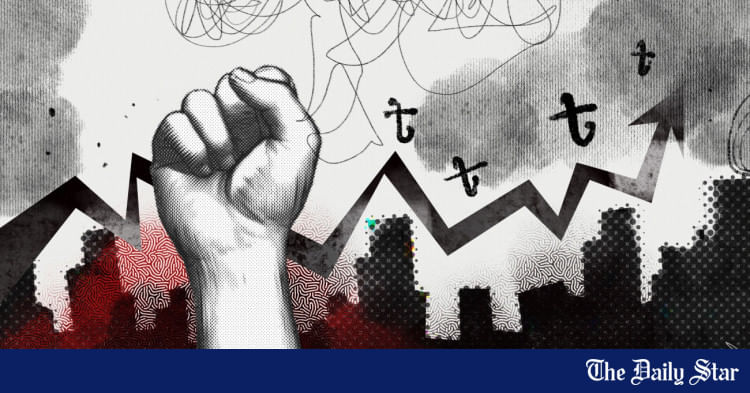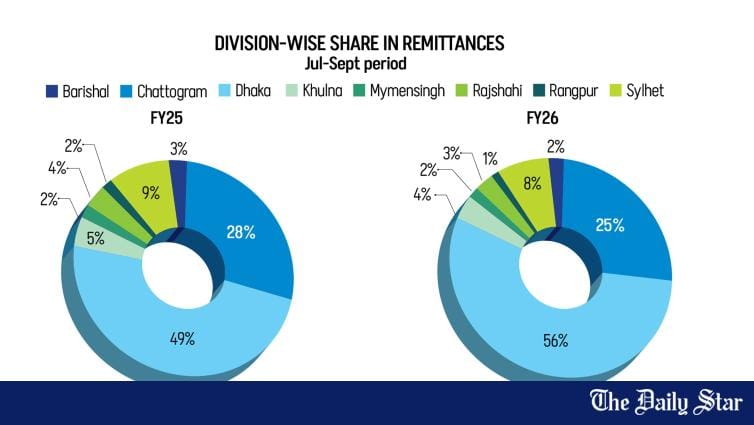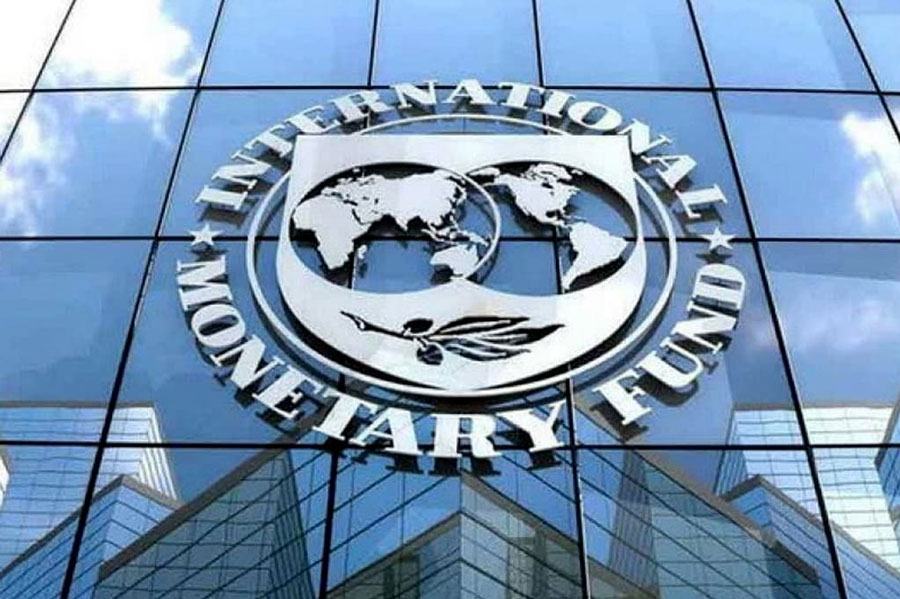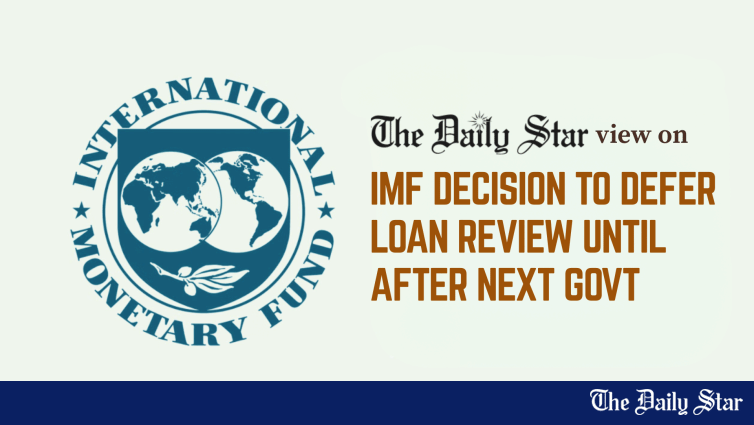Saif
Senior Member
- Joined
- Jan 24, 2024
- Messages
- 16,447
- Likes
- 8,111
- Nation

- Residence

- Axis Group

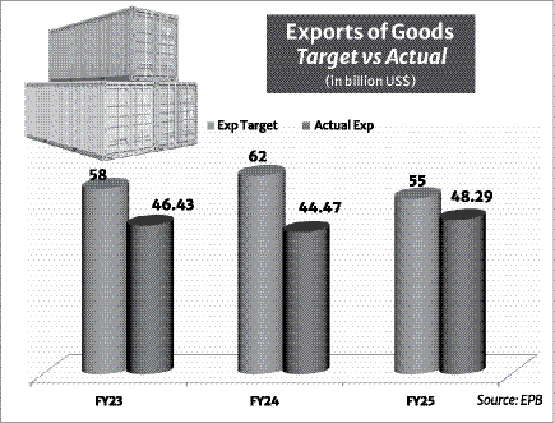
Challenges to achieving the export target
Setting the annual target of exports is a tradition for long in the country though there is no official target for imports. As earnings from export is an important source to support the country's balance of payments (BoP) as well as the economic growth, the strategic target of annual export is cons
Challenges to achieving the export target
Asjadul Kibria
Published :
Aug 17, 2025 00:37
Updated :
Aug 17, 2025 00:37

Setting the annual target of exports is a tradition for long in the country though there is no official target for imports. As earnings from export is an important source to support the country's balance of payments (BoP) as well as the economic growth, the strategic target of annual export is considered as a benchmark to determine the performance of the export-oriented industries. Following the tradition, after a modest rise in exports in the last fiscal year, the interim government has set a double digit growth target in earnings from exports of goods and services for the current fiscal year (FY26). The target for merchandise exports is set at US$55 billion for FY 2026 against the actual earnings of $48.28 billion in FY25 when the target was $50 billion. The target for services exports set at $8.50 billion against the target of $7.50 billion in the last fiscal year. Thus, the overall exports target is set at $63.50 billion for the current fiscal year.
After a decline in two consecutive fiscal years, exports of goods surged by 8.50 per cent in the last fiscal year indicating a modest rebound in the economy despite a massive political unrest and changeover in the country. The first quarter of FY25 passed through a sluggish economic activity due to student-led mass uprising in the country that led to downfall of the authoritarian regime of Hasina on August 5 last year. Nevertheless, receipts from exports of goods stood at $11.65 billion in the first quarter which increased to $12.88 billion in the second quarter of the last fiscal year. The third quarter, however, witnessed a slight drop of exports to $12.65 billion and the last quarter ended with the lowest quarterly earnings of $11.12 billion in FY25.
When the domestic economic condition started to rebound, the return of external turbulence did cast a shadow on export growth. In April, Donald Trump, president of the United States (US), announced his reciprocal tariff policy and imposed high rate of tariffs on various trading partners. On Bangladesh, he imposed 37 per cent tariff making the exports from the country excessively costly. The initial reciprocal tariffs were, however, suspended for three months as Trump administration provided a room for negotiation. After a hectic negotiation along with offering a number of benefits, the US has finally agreed to impose 20 per cent reciprocal tariff on all the imports of Bangladesh. It means, the country has to pay 20 per cent additional duty on the existing duties on different products. The tariff blitz has shocked the world and exports from the different countries to the US market also suffered. Bangladesh's export to the US also dropped slightly to $2.35 billion in the last quarter of FY25 from $2.52 billion of the third quarter.
Now, the new export target for FY26 is around 14 per cent higher than the actual earnings of the last fiscal year. The government is optimistic that lower reciprocal tariff will help maintain the exports to the US market. Moreover, the higher reciprocal tariffs on competitors like India will be a boon for Bangladesh.
There is a reason to be slightly optimistic about the global trade, as per the World Trade Organization (WTO). The economists of the WTO at the latest update of the trade forecast said that global merchandise trade is to grow 0.9 per cent in 2025, up from the 0.2 per cent contraction forecasted in April. The latest projection of tiny trade growth is, however, significantly down from the 2.7 per cent growth estimated before the Trump's tariff blitz.
Two factors drive the WTO to make a modest growth projection for the current year. First is the surge of the US imports in the first half of 2025 by 11 per cent in terms of volume due to 'frontloading and inventory accumulation.' Simply put, frontloading means the practice of importing goods in large quantitities or earlier than usual time to avoid possible challenges that may rise in costs or obstruct supply chains. Second is the better macroeconomic outlook than predicted in April last. Nevertheless, the WTO projection also pointed out that recent tariff changes are expected to have an overall negative impact on the outlook for global trade compared to the April forecast. It was of the view that the US-China truce and exemptions for motor vehicles are contributing positively. At the same time higher reciprocal tariff rates, introduced on 7 August, are likely to weigh increasingly on imports in the US and depress exports of its trading partners in the second half of 2025. Bangladesh is one of the US trading partners which is set to face at least 35 per cent tariff on average due to 20 per cent reciprocal tariff besides the current 15 per cent average tariff.
European Union (EU) is another big market for Bangladesh and the country is likely to enhance its exports to the market as there is no tariff barrier. The challenge is that those who are facing the higher tariffs in the US will try to redirect some of the exports to the EU market and that may put Bangladesh into some extra competition. Moreover, as India has already signed a free trade agreement (FTA) with the United Kingdom (UK), there will be a competitive pressure for Bangladesh in near future. It is also not unlikely that India will try to re-export to the US through UK.
For Bangladesh, Indian market is also set to shrink as New Delhi has already put a number of trade barriers since the fall of Hasina regime which was a close ally of the Indian government. The trade barriers are clearly political although some economic justifications have been given. Though the interim government has requested for consultation to resolve the issue of trade restriction, Modi government continues to cold-shoulder the gesture and hinted that more trade restrictions on Bangladesh are in the offing.
Finally, the country is likely to enter into the election business cycle by the end of the second quarter of the current fiscal year, and the cycle would continue in the third quarter, provided that the national election takes place in February next year. As the previous election business cycles showed, it will be marked by sluggish economic growth, and so exports may not gear up as expected. So, achieving the target will no doubt be challenging.
Asjadul Kibria
Published :
Aug 17, 2025 00:37
Updated :
Aug 17, 2025 00:37
Setting the annual target of exports is a tradition for long in the country though there is no official target for imports. As earnings from export is an important source to support the country's balance of payments (BoP) as well as the economic growth, the strategic target of annual export is considered as a benchmark to determine the performance of the export-oriented industries. Following the tradition, after a modest rise in exports in the last fiscal year, the interim government has set a double digit growth target in earnings from exports of goods and services for the current fiscal year (FY26). The target for merchandise exports is set at US$55 billion for FY 2026 against the actual earnings of $48.28 billion in FY25 when the target was $50 billion. The target for services exports set at $8.50 billion against the target of $7.50 billion in the last fiscal year. Thus, the overall exports target is set at $63.50 billion for the current fiscal year.
After a decline in two consecutive fiscal years, exports of goods surged by 8.50 per cent in the last fiscal year indicating a modest rebound in the economy despite a massive political unrest and changeover in the country. The first quarter of FY25 passed through a sluggish economic activity due to student-led mass uprising in the country that led to downfall of the authoritarian regime of Hasina on August 5 last year. Nevertheless, receipts from exports of goods stood at $11.65 billion in the first quarter which increased to $12.88 billion in the second quarter of the last fiscal year. The third quarter, however, witnessed a slight drop of exports to $12.65 billion and the last quarter ended with the lowest quarterly earnings of $11.12 billion in FY25.
When the domestic economic condition started to rebound, the return of external turbulence did cast a shadow on export growth. In April, Donald Trump, president of the United States (US), announced his reciprocal tariff policy and imposed high rate of tariffs on various trading partners. On Bangladesh, he imposed 37 per cent tariff making the exports from the country excessively costly. The initial reciprocal tariffs were, however, suspended for three months as Trump administration provided a room for negotiation. After a hectic negotiation along with offering a number of benefits, the US has finally agreed to impose 20 per cent reciprocal tariff on all the imports of Bangladesh. It means, the country has to pay 20 per cent additional duty on the existing duties on different products. The tariff blitz has shocked the world and exports from the different countries to the US market also suffered. Bangladesh's export to the US also dropped slightly to $2.35 billion in the last quarter of FY25 from $2.52 billion of the third quarter.
Now, the new export target for FY26 is around 14 per cent higher than the actual earnings of the last fiscal year. The government is optimistic that lower reciprocal tariff will help maintain the exports to the US market. Moreover, the higher reciprocal tariffs on competitors like India will be a boon for Bangladesh.
There is a reason to be slightly optimistic about the global trade, as per the World Trade Organization (WTO). The economists of the WTO at the latest update of the trade forecast said that global merchandise trade is to grow 0.9 per cent in 2025, up from the 0.2 per cent contraction forecasted in April. The latest projection of tiny trade growth is, however, significantly down from the 2.7 per cent growth estimated before the Trump's tariff blitz.
Two factors drive the WTO to make a modest growth projection for the current year. First is the surge of the US imports in the first half of 2025 by 11 per cent in terms of volume due to 'frontloading and inventory accumulation.' Simply put, frontloading means the practice of importing goods in large quantitities or earlier than usual time to avoid possible challenges that may rise in costs or obstruct supply chains. Second is the better macroeconomic outlook than predicted in April last. Nevertheless, the WTO projection also pointed out that recent tariff changes are expected to have an overall negative impact on the outlook for global trade compared to the April forecast. It was of the view that the US-China truce and exemptions for motor vehicles are contributing positively. At the same time higher reciprocal tariff rates, introduced on 7 August, are likely to weigh increasingly on imports in the US and depress exports of its trading partners in the second half of 2025. Bangladesh is one of the US trading partners which is set to face at least 35 per cent tariff on average due to 20 per cent reciprocal tariff besides the current 15 per cent average tariff.
European Union (EU) is another big market for Bangladesh and the country is likely to enhance its exports to the market as there is no tariff barrier. The challenge is that those who are facing the higher tariffs in the US will try to redirect some of the exports to the EU market and that may put Bangladesh into some extra competition. Moreover, as India has already signed a free trade agreement (FTA) with the United Kingdom (UK), there will be a competitive pressure for Bangladesh in near future. It is also not unlikely that India will try to re-export to the US through UK.
For Bangladesh, Indian market is also set to shrink as New Delhi has already put a number of trade barriers since the fall of Hasina regime which was a close ally of the Indian government. The trade barriers are clearly political although some economic justifications have been given. Though the interim government has requested for consultation to resolve the issue of trade restriction, Modi government continues to cold-shoulder the gesture and hinted that more trade restrictions on Bangladesh are in the offing.
Finally, the country is likely to enter into the election business cycle by the end of the second quarter of the current fiscal year, and the cycle would continue in the third quarter, provided that the national election takes place in February next year. As the previous election business cycles showed, it will be marked by sluggish economic growth, and so exports may not gear up as expected. So, achieving the target will no doubt be challenging.

